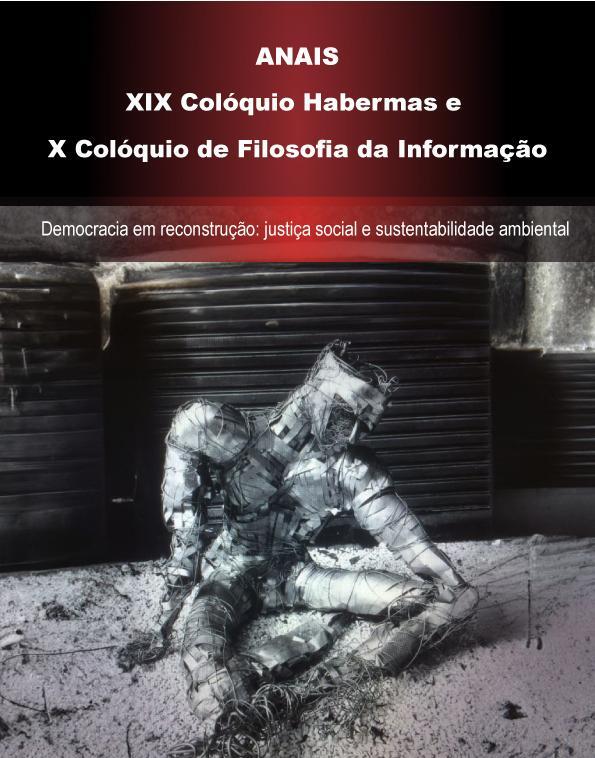LABOR AND DEMOCRACY
justice and no social regression
DOI:
https://doi.org/10.21728/logeion.2023v10nesp2.p127-142Keywords:
democracy, no social regression, participationAbstract
The capital-labor relationship is increasingly complex. From the hierarchical factory to the pulverized, technological and digital production system, the concentration of economic power produces a serious negative externality: the decentralization of labor and its social value. The concentration of capital increasingly discards the worker in his human condition and in the broader sense of citizenship. Based on the theme of the Habermas Colloquium, it is possible to identify the weakening of the State as a promoter and guarantor of workers' fundamental rights, affecting union membership as a form of working class loyalty, or in other words class consciousness or solidarity among workers. Consequently, labor unions operate with a deficit of legitimacy and representation, as is the case with the structure of a single labor union per professional category. In this context, we reflect on the effects of this complex and tense relationship, at the time of reconstruction or restoration of the participatory and deliberative democratic order, aiming to prevent social regression of workers. We anchored the study in the Federal Constitution, in principles of Labor Law, in Habermasian reflections on the topic. We situated our research from 2017, when the Labor Reform took place. With this approach, we propose a dialogue beyond positive law, since the social value of work and the entrepreneur's free initiative crosses several social structures that compete for space with the various segments of the Brazilian State.
Downloads
References
ALMEIDA, Silvio Luiz de. Racismo estrutural. São Paulo: Sueli Carneiro; Pólen, 2019.
ALVES, Leonardo Dias, Ghiraldelli Reginaldo: A divisão racial do trabalho na formação social brasileira. In NEVES, Angela Vieira, Ghiraldelli Reginaldo (organizadores). Trabalho, democracia e participação. Brasília: Editora Universidade de Brasília, 2022.
BRASIL. Congresso Nacional. Senado Federal. CONSOLIDAÇAÕ DAS LEIS DO TRABALHO – CLT e normas correlatas. Brasília: Senado Federal, Coordenação de Edições Técnicas, 2017.
ELIAS, Michelly Ferreira Monteiro. Lutas da classe trabalhadora na consolidação da ordem monopólica no Brasil. In NEVES, Angela Vieira, Ghiraldelli Reginaldo (organizadores). Trabalho, democracia e participação. Brasília: Editora Universidade de Brasília, 2022.
FAORO, Raymundo. Os Donos do Poder: formação do patronato político brasileiro. 3 ed. Revista. São Paulo: Globo, 2001.
FERRARI, Irany, NASCIMENTO, Amauri Mascaro, FILHO, Ives Gandra da Silva Martins. História do trabalho e do direito do trabalho e da justiça do trabalho. São Paulo: LTr. 1998.
FRASER, N., & Sousa Filho, J. I. R. de. (2018). Crise de legitimação? Sobre as contradições políticas do capitalismo financeirizado. Cadernos De Filosofia Alemã: Crítica E Modernidade, 23(2), 153-188. https://doi.org/10.11606/issn.2318-9800.v23i2p153-188
HABERMAS, Jürgen. Técnica e ciência como “ideologia”.1 ed. São Paulo: Editora Unesp, 2014.
HABERMAS, Jürgen. Direito e Democracia: entre facticidade e validade. 2 ed. Rio de Janeiro: Tempo Brasileiro. 20003.
LUHMANN, Niklas. Introdução à Teoria dos Sistemas. (Aulas publicadas por J.T.Nafarrate). Petrópolis: Editora Vozes, 2009 (1995).
NETA, Avelina Alves Lima. A agenda neoliberal e antidemocrática e suas implicações para os direitos sociais no Brasil. In NEVES, Angela Vieira, Ghiraldelli Reginaldo (organizadores). Trabalho, democracia e participação. Brasília: Editora Universidade de Brasília, 2022.
Downloads
Published
Issue
Section
License
Copyright (c) 2023 Logeion: Filosofia da Informação

This work is licensed under a Creative Commons Attribution-NonCommercial-ShareAlike 4.0 International License.
The journal is published under the Creative Commons - Attribution - Noncommercial - Share Alike 3.0 Brazil.
The published work is considered collaboration and therefore the author will not receive any remuneration for this as well as anything will be charged in exchange for publication.
All texts are responsibility of the authors.
It’s allowed partial or total reproduction of the texts of the magazine since the source is cited.




